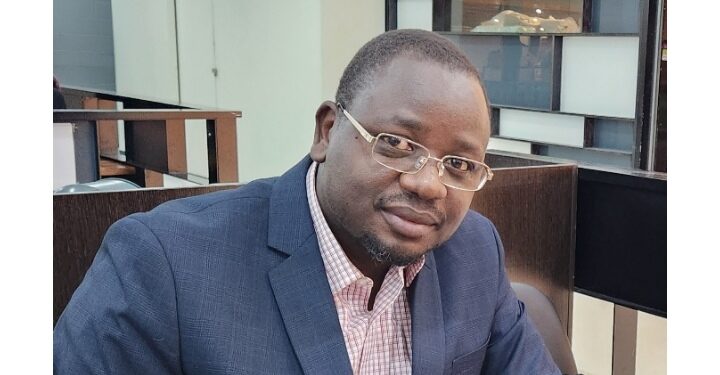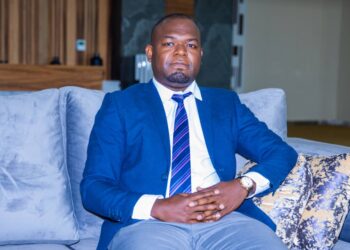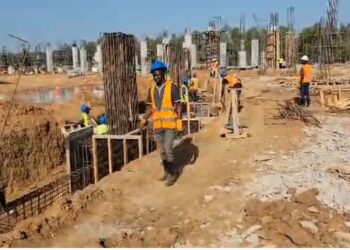When President Yoweri Museveni declared recently that “the system is dead,” many Ugandans were stunned, though not surprised. It was a blunt acknowledgment that government machinery; once the symbol of discipline and reform under the National Resistance Movement (NRM), is no longer functioning as anticipated. As a leader who has successfully steered the nation for nearly four decades, the admission went beyond personal frustration. It was a national moment of reckoning.
To his greatest credit, Yoweri Museveni (Sabalwanyi – winner of all wars) sounded the alarm bells. However, acknowledging the rot is only the first step. The deeper challenge is that corruption in Uganda is not the outcome of isolated failures. It is the cumulative result of entrenched practices and a political economy that has hollowed out the state from within, dismantling the very pillars of equitable development, inclusive growth and socioeconomic transformation.
The roots of collapse
Uganda’s governance breakdown is not accidental. It has been constructed over decades on four interconnected pillars that continue interact, to the detriment of the nation, poverty reduction and, Yoweri Museveni’s vison and commitment to socioeconomic transformation:
Patronage politics; appointments and promotions are often made based on loyalty rather than professional competence or service delivery credentials. Public institutions have become vehicles for political rewards rather than service provision.
Impunity for the powerful; high-profile corruption cases are selectively prosecuted, with politically connected individuals rarely facing consequences. This creates a culture of immunity, not accountability.
Weak and politicized institutions; oversight institutions such as the IGG, Auditor General, and Public Accounts Committee are often undermined, underfunded, or politicized. Their mandates are regularly frustrated by executive overreach and bureaucratic inertia.
Elite capture of public goods; a small political elite and bureaucrats has cornered access to state resources, public contracts, and key economic sectors. From oil deals to road construction, wealth is systematically concentrated in the hands of a few.
Together, these forces have institutionalized corruption, making it not just tolerated, but expected. It has evolved from sporadic malpractice to a normalised approach of governance. This normalised practice embeds poverty, widens inequality, and undermines the promise of sustainable poverty reduction efforts and overall socioeconomic transformation, a hallmark of Yoweri Museveni’s presidency.
The high cost of corruption: who pays?
The financial and social costs are immense, and hugely terrifying. A 2021 report by the Auditor General found that UGX 3.9 trillion in public funds were unaccounted for across ministries, agencies, and local governments! The IGG’s own estimate suggests that corruption drains Uganda of over UGX 9.7 trillion annually — nearly 10% of the national budget.
Important to note, these losses are not just numbers or abstract figures. They translate directly into:
Children learning under trees instead of completed classrooms, or students dropping out of school because UPE funds have been diverted.
Hospitals without medicine or staff, despite budget allocations, or patients turned away from health centres because essential drugs have been stolen.
Unfinished roads and collapsed bridges within mere months after construction, or persistent accidents on our dilapidated road network.
Thousands of villages without clean water, electricity or inaccessibility.
Failed poverty reduction programs, where resources are intercepted, and rarely reach intended beneficiaries.
Public sector wage theft, where ‘ghost’ workers crowd out real service providers.
In this context, corruption is well beyond theft of money; its theft of thousands of lives that continue to perish on the dilapidated roads, or on poorly equipped hospitals, it is theft of futures, of dignity, and of opportunities for millions of Ugandans. The former IGG, now a supreme court judge (Her Worship, Mulyagonja was quoted), during the funeral of her late husband, remarked ‘referral hospitals like Mulago, had turned into mere monuments’.
Unfortunately, instead of using this as an opportunity to demand more budgetary allocation and improvement of hospital services, the Director of Mulago hospital, sadly, and shamelessly responded that the Supreme court judge should have contacted her directly during the failed treatment! The tragedy of a black man!
Yoweri Museveni’s dilemma and opportunity
President Yoweri Museveni’s admission of failure carries weight precisely because he once built his legitimacy on fighting indiscipline. In the 1980s, the NRA’s harsh punishments for looting and misconduct symbolized a new political order, a beacon of hope for Uganda. Over time, however, the rhetoric of zero tolerance gave way to the realities of power consolidation.
The President continues to denounce corruption in speeches, labelling the corrupt as “parasites” and “enemies of progress (poverty reduction and socioeconomic transformation).” Sadly, rhetoric alone is no substitute for action. Major scandals: from the Karachuna Mabati theft in OPM, Cooperatives’ compensation theft in Ministry of trade, public land grabs (Njeru, Tororo et al), fraudulent procurement, embezzlement of donor funds, and dubious expenditures, resurface with near-cyclical predictability. Yet some perpetrators often receive promotions rather than punishment. From parliamentary censorships of 1998, ghost schools/dams and health worker absenteeism to inflated road contracts and questionable energy concessions. Too often, implicated officials have quietly found themselves recycled into new posts.
This contradiction — tough talk, soft action — has eroded public confidence. Survey after survey, including from Afrobarometer, show that majority of Ugandans believe corruption (Ecamusana/Akantu) is worsening and that the state lacks both will and capacity to fight it.
In effect, the government’s anti-corruption drive has produced winners and losers:
Winners: Politically connected elites like those marauding in state house corridors, who enrich themselves with passion, impunity and autonomy, often using anti-corruption rhetoric to eliminate rivals.
Losers: Millions of ordinary Ugandans (NRM voting block); farmers/peasants, teachers, nurses, and small business owners — who pay the price for a system that no longer delivers.
What next for Yoweri Museveni and Uganda?
If the government system is indeed “dead,” the question is whether it can be revived (resuscitated), how and by who. During General Muhoozi’s birthday celebrations few years ago, the President of Uganda reminded the nation – ‘he is patient with the corrupt, however, General Muhoozi is not’. The central question therefore is, how much more should the nation loose before General Muhoozi precisely acts on these marauding thugs?
I do suggest, the road to resuscitation must include:
Depoliticizing oversight institutions – Strengthen the IGG, Auditor General, and Judiciary with adequate resources, legal independence, and security of tenure. These institutions must be shielded from political interference.
Empowering parliament – parliamentary committees must assert their oversight powers and act with integrity. Bi-partisan collaboration should be encouraged to expose corruption without fear of party reprisals. Hon Ssenyonyi Joel and his cohort of former singers/entertainers should put bipartisan tendencies aside and effectively collaborate with NRM no change faithfuls.
Civic Accountability and Citizen Engagement
– Citizens must be empowered to demand transparency through access to information. Initiatives like budget transparency portals and participatory budgeting can enhance grassroots oversight.
Reforming the Public Service – The civil service must be rebuilt around meritocracy, with clear career paths, performance incentives, and sanctions for malpractice.
Ending the culture of impunity – a few high-profile prosecutions of politically connected figures — carried through to conviction — would send a powerful message that the law applies to all.
A moment of reckoning and opportunity
President Museveni has raised the alarm. But responsibility now lies with the full spectrum of Ugandan society:
Uganda stands at a defining crossroads. One path leads to continued moral and institutional decay (aibos), where corruption (Ecamusana) becomes so normalized that governance collapses entirely. The other, though narrow and steep, leads to renewal — where leaders are accountable, institutions are respected, and resources are used for the common good.
The future of poverty reduction and socioeconomic transformation depends on the path chosen. President Museveni has acknowledged the rot. The next chapter must be written not in speeches, but in action, and we should salute the president for this level of honesty and boldness.
About the Author:
Dr. Samuel B. Ariong is a lecturer, researcher, and development policy scholar with a PhD. Constructive feedback can be emailed to; ariongsb@gmail.com.
Do you have a story in your community or an opinion to share with us: Email us at editorial@watchdoguganda.com














